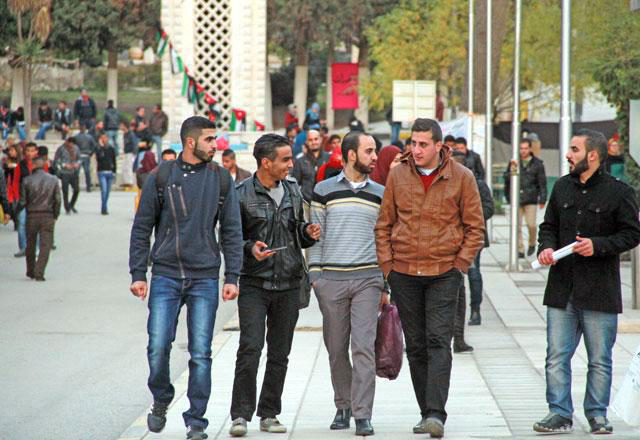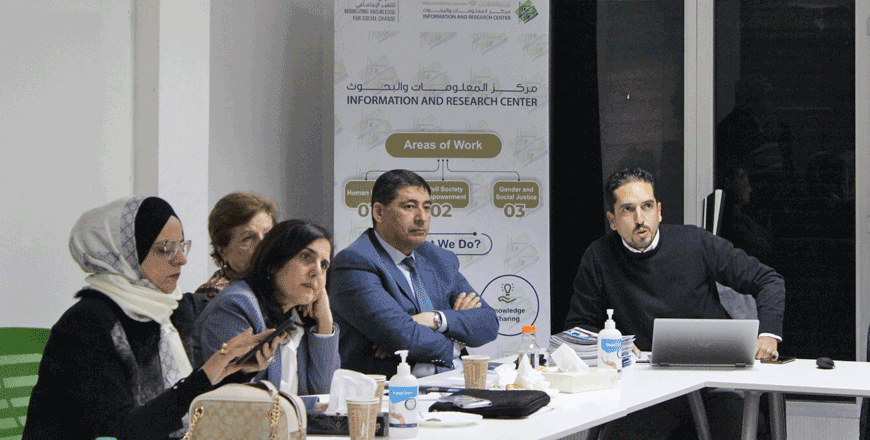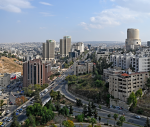You are here
Jordan’s youth perceive human rights as critical but face barriers to action - study
By Maria Weldali - Nov 11,2024 - Last updated at Nov 11,2024

A new study by the Information and Research Centre-King Hussein Foundation explores how young Jordanians interact with the human rights landscape (JT file)
AMMAN — In an era where demands for justice and equality are intensifying, understanding how Jordan’s youth perceive and engage with human rights is critical for shaping the future of society.
A new study by the Information and Research Centre-King Hussein Foundation (IRCKHF) explores how young Jordanians interact with the human rights landscape, delving into their views on protecting these rights and assessing their awareness of the institutions responsible for upholding them.
Supported by the Danish Institute for Human Rights, the study, titled "Jordanian Youth: Perceptions and Engagement in Human Rights," sheds light on the importance of understanding youth perspectives within the Jordanian context.
It presents findings on their views regarding key human rights issues such as freedom of expression, gender equality, and the right to fair treatment.
The study also examines how attitudes towards these issues vary across demographic factors, including gender, age, education, and geographic location.
In addition, it explores how young people in the Kingdom perceive the protection of human rights and assess the effectiveness of current laws and policies.
The study surveyed 459 young individuals from the three main regions (North, South, and Central), with a 95 per cent confidence level and a 5 per cent margin of error.
The findings present a complex picture: While many young Jordanians express awareness of their rights and are vocal about issues they care about, barriers such as limited access to information and societal constraints often hinder their active engagement.
IRCKHF Director Ayman Halaseh said that the findings are “shocking,” stressing that the study provides more than just statistics as it reflects the aspirations and perceptions of youth.
Halaseh noted that the age group 18-24 was specifically targeted because they are often the most active and driven when it comes to making a difference.
Their energy, idealism, and willingness to challenge the status quo make them key players in advocating for social change and justice, thus empowering Jordan’s youth to take a more prominent role in the human rights conversation, he added.
The director also pointed out that 8 per cent of the study sample were non-Jordanians, ensuring that all groups were represented.
He also said that the study was conducted amid the ongoing Gaza War, which he believes has impacted youth perceptions of the human rights system, adding “It has certainly affected youth belief in the human rights system, and I do not blame them for that.”
Against a backdrop of rapid social change and regional turmoil, the research uncovers both challenges and opportunities in fostering a generation that not only understands but actively advocates human rights.
"The findings reveal a complex and sometimes surprising landscape of attitudes towards human rights among Jordanian youth," Halaseh added.
The study found that 86.2 per cent of young women and nearly 74 per cent of young men believe in the importance of gender equality. Similarly, a significant portion of youth values freedom of expression, with 80.5 per cent of young women and 72.8 per cent of young men considering it “important” or “very important.”
The study also revealed that young Jordanians have limited awareness of key human rights institutions, both local and international.
A surprising 66.7 per cent of respondents were unfamiliar with the National Centre for Human Rights, and 51.2 per cent were unaware of the Anti-Corruption Commission.
Related Articles
AMMAN — The Information and Research Centre of the King Hussein Foundation (IRCKHF), on Tuesday held a roundtable session to generate recomm
AMMAN — In the virtual world, a large and expanding platform, women are at higher risk of digital violence, said Minister of State for Legal
AMMAN — The Information and Research Centre - King Hussein Foundation (IRC-KHF), on Wednesday delivered a training session to journalists on

















